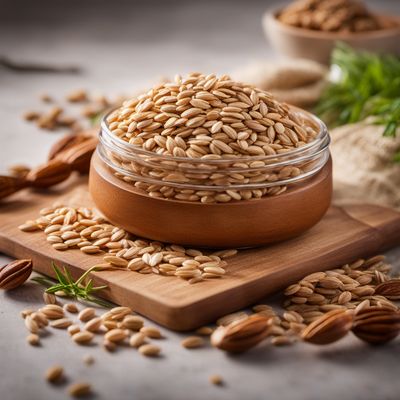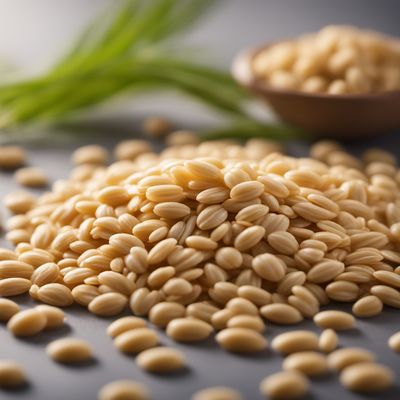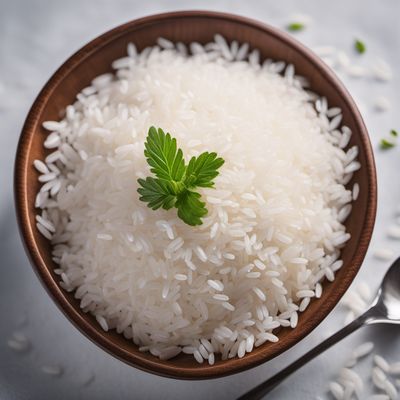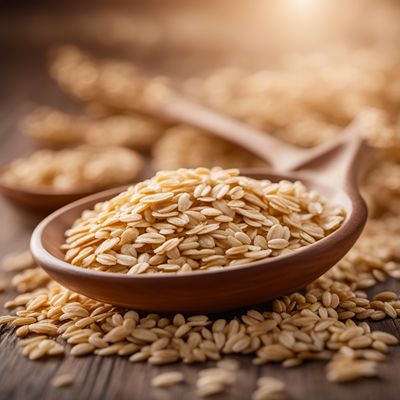
Ingredient
Popped cereals
The Crunchy Delights
Popped cereals are made by heating grains, such as corn or rice, until they expand and become light and crispy. They have a distinct texture and a mild, toasty flavor. Popped cereals are commonly used in breakfast cereals, snack bars, and as a topping for desserts.
Origins and history
The process of popping grains dates back thousands of years and is believed to have originated in ancient civilizations such as the Aztecs and Mayans. These cultures discovered that heating grains could transform them into a more palatable and digestible form. Today, popped cereals are enjoyed worldwide and are a staple in many breakfast options and snack foods.
Nutritional information
Popped cereals are low in fat and calories, making them a healthier alternative to fried snacks. They also provide a good source of carbohydrates and dietary fiber. Additionally, some varieties of popped cereals are fortified with vitamins and minerals to enhance their nutritional value.
Allergens
May contain gluten or traces of nuts.
How to select
When selecting popped cereals, look for ones that are fresh and crispy. Avoid packages that are damaged or have been opened. Check the expiration date to ensure the product is still within its shelf life. Opt for organic or whole grain options whenever possible for added nutritional benefits.
Storage recommendations
To maintain the freshness and crispiness of popped cereals, store them in an airtight container or resealable bag. Keep them in a cool, dry place away from direct sunlight or moisture. Properly stored, popped cereals can last for several weeks.
How to produce
Popped cereals can be produced at home by heating grains in a hot air popper or on the stovetop using a covered pot. Simply add the grains to the popper or pot, apply heat, and wait for them to pop. Be sure to follow the manufacturer's instructions or recipe guidelines for best results.
Preparation tips
Popped cereals can be enjoyed as a standalone snack or used in various culinary applications. They can be added to breakfast cereals, granola bars, trail mixes, or used as a topping for yogurt, ice cream, or desserts. Popped cereals can also be ground into a powder and used as a coating for chicken or fish for a crispy texture.
Substitutions
Rice cakes, puffed quinoa, or popped amaranth can be used as substitutes for popped cereals. They offer a similar crunchy texture and can be used in similar ways in recipes.
Culinary uses
Popped cereals are commonly used in breakfast cereals, granola bars, and snack foods. They are also popular as a topping for desserts, such as ice cream sundaes or fruit parfaits. Additionally, popped cereals can be incorporated into savory dishes, like salads or stir-fries, to add a crunchy element.
Availability
Popped cereals are widely available in grocery stores, supermarkets, and online retailers. They are cultivated and produced in various regions around the world, including the United States, Europe, and Asia.
More ingredients from this category

Wheat, popped
The Crunchy Delight: Exploring Popped Wheat

Rye popped
Crunchy Rye Delight

Barley popped
Crunchy Delight: Exploring the Popped Goodness of Barley

Popcorn (maize, popped)
The Crunchy Movie Snack

Rice, popped
The Crunchy Delight: Exploring the World of Popped Rice

Oat popped
Crunchy Oat Delight